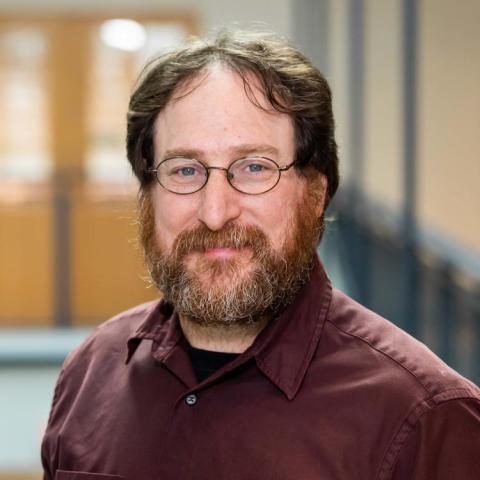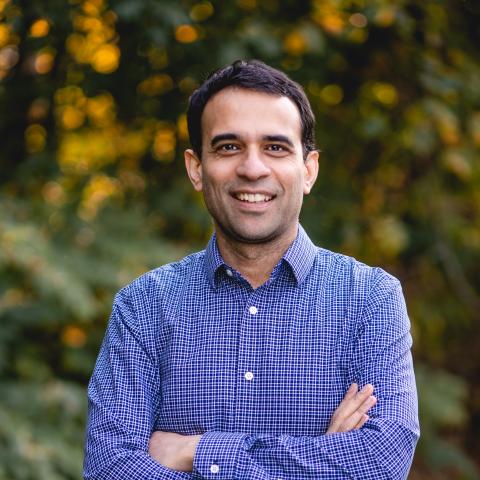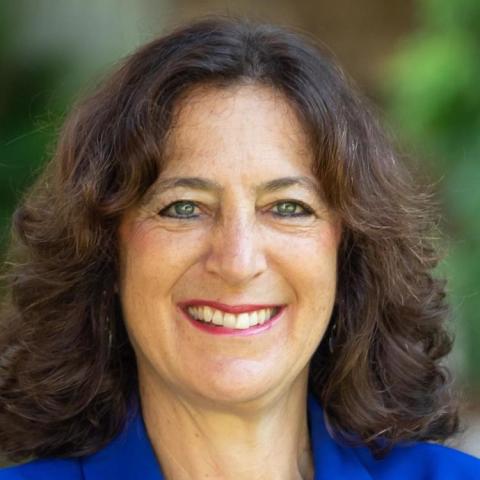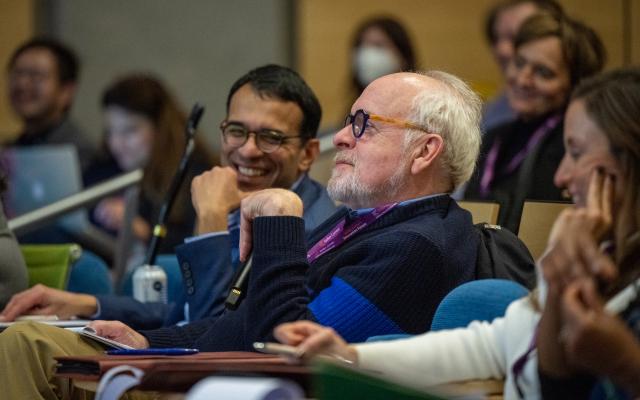
Technology that radically boosts industry's ability to draw lithium from briny water and a system allowing visitors to take virtual tours of museums worldwide won first prizes at the 17th annual Innovation Forum on December 14.
The motivation to create solutions that foster change, the drive to advance existing systems and technologies to do better, and the ambition to benefit humanity were on full display as ten teams of researchers pitched their innovations.
Innovation Forum has been shedding light on advancements and technologies borne from Princeton faculty, researchers, and graduate students for the past seventeen years. This flagship event allows Princeton innovators and entrepreneurs to promote their solution designs with the potential for venture development, cultural enrichment, and societal impact.
The Forum invites innovators from engineering, humanities, and social science fields to pitch their innovations to a panel of experts in hopes of taking home a piece of the 60K in prize money.
In his fireside chat conversation with Keller Center's director Naveen Verma, Vice Dean of Innovation Craig Arnold said his mission is to help build bridges across campus and to smooth the way for Princeton innovators to deliver impact to the world.
"We need to build bridges. We need to connect. One thing about innovation that's so critical to our mission as a university is how we connect with the world. You know, it's about clearing the debris from the roads, filling in the potholes, and creating a super highway so that our colleagues can excel." said Arnold.
As the presenters took the stage, the foundations of the bridge that Keller is building across campus became evident. Graduate students and faculty members from the Andlinger Center, the chemistry department, architecture, molecular biology, and electrical and computer engineering, to name a few, were gathered in the Frick auditorium to make their 3-minute pitches. Their innovations covered a wide array of topics, from advancing rocket propulsion systems to democratizing healthcare, tackling food waste issues, environmentally responsible lithium production, and more.
The diversity of innovations and innovators showcased at the Forum is a perfect example of the inclusive atmosphere we are building on campus to help nurture cross-disciplinary, cooperative projects that can create sustainable impact.
Manish Bhardwaj, director of Keller's newest initiative, the Design for Innovation Program, reminded the audience of how the humanities can enrich our concept of innovation and how a humanistic point of view is fundamental in opening new channels and new ways of thinking. He hopes the Forum and his program help support faculty to develop their ideas and translate them into a real-world blueprint for impact. "Let's figure out what we can forge out of this intersection," said Bhardwaj.
The event wrapped up with closing remarks from the engineering school's Dean, Andrea Goldsmith. She spoke of how the presenters embodied the innovative nature and spirit she hopes to foster in her role as Dean and how this event and the solution designs showcased at the Forum are "how Princeton can make its unique mark to benefit humanity."
2022 Innovation Forum Winners
STEM innovations
- First Place: PureLi- $15,000
- Second Place: FLO-SSEMBLY- $10,000
- Third Place: Magnetic Reconnection Plasma Thruster- $5,000
Humanities innovations
- First Place: Museumverse - $15,000
- Second Place: Split - MoVa - $7,500 and Project Leadership - $7,500
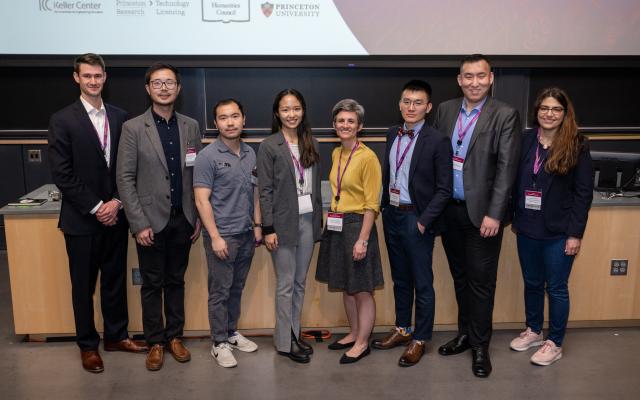
Pictured: Dan Shaw - FLO-SSEMBLY, Sean Zheng - PureLi, Genyuan Hu and Isla Xi Han - MoVA, Laurel Lorenz - Project Leadership, Mengge Cao and Michael Zhang - Museumverse, Fatima Ebhrahimi - Magnetic Reconnection Plasma Thruster.
